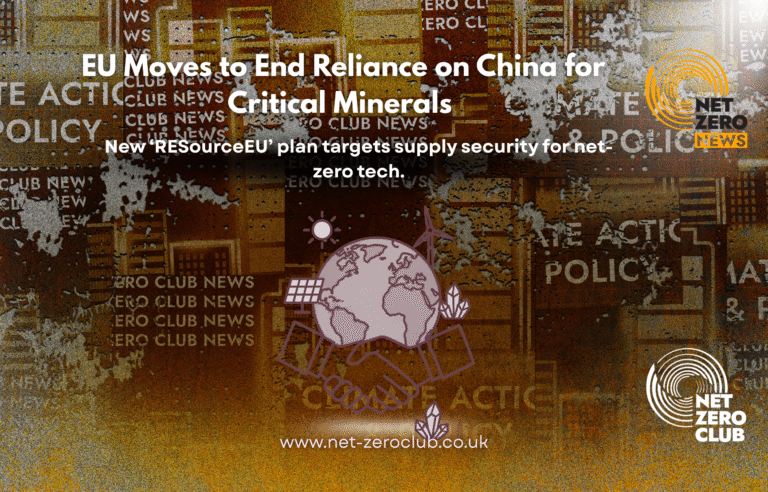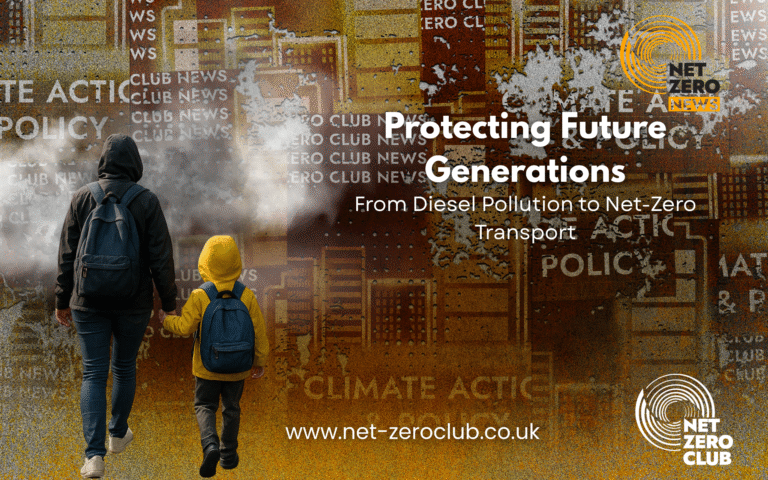Europe’s Quest for Africa’s Resources: Righting Historical Wrongs

Welcome, Net Zero News readers,
In a world that is increasingly recognising the urgent need for sustainable development and responsible resource management, Europe finds itself at a pivotal moment in its relationship with Africa. The historical context of exploitation during the colonial era casts a long shadow over current engagements, particularly as the European Union (EU) seeks to establish a more equitable partnership with African nations. The modernisation of infrastructure, particularly the railway connecting mineral-rich regions in Africa to global markets, serves as a key focus in this new narrative.
Historically, the railway built during the colonial period served the interests of Western powers, facilitating the extraction of valuable resources such as rubber and ivory. Fast forward to today, and the same railway, which stretches through Zambia, the Democratic Republic of Congo (DRC), and Angola, is being revitalised with significant investments from the EU and the United States. These funds aim to transport essential minerals, notably cobalt and copper, which are crucial for modern technologies and renewable energy solutions.
Just recently, EU Commissioner for International Partnerships, Jozef Síkela, announced a substantial €116 million investment aimed at enhancing this corridor, which is often highlighted as a flagship initiative under the EU’s Global Gateway programme. This programme seeks to promote sustainable infrastructure projects that can support economic growth while considering the needs of local communities.
European Commission President Ursula von der Leyen is set to reinforce this commitment during an upcoming summit in Luanda, Angola, where she will engage with African leaders. This summit marks the 50th anniversary of Angola’s independence from Portuguese rule, making it a particularly poignant occasion to discuss the evolution of EU-Africa relations.
Von der Leyen has articulated the vision behind the Global Gateway initiative, stating, “Global Gateway is about mutual benefits.” She emphasises the importance of developing resilient value chains that not only extract resources but also create local jobs, skills, and industries. The ambition is clear: to transform the economic landscape of Africa by ensuring that local communities can reap the benefits of their natural resources.
However, the situation is complicated. As Europe rushes to solidify its presence in Africa, it must contend with the fact that China has already established itself as a dominant player in the region. African nations are currently primary suppliers of minerals to China, which has built strong relationships based on investment and infrastructure development, free from the historical baggage that characterises European engagements.
The EU’s focus on economic value retention within host countries aligns with calls from African leaders for a more sustainable and equitable approach to resource extraction. European officials have been vocal in their desire to be seen as a reliable and ethical partner in the mining sector. Yet, there remains a palpable gap between rhetoric and action, as many analysts and local advocates express concerns about the effectiveness of the Lobito Corridor in delivering genuine benefits to African communities.
Martina Matarazzo, an international and EU advocacy coordinator at Resource Matters, a Belgian NGO, highlights this disconnect. She points out that while the EU aims to portray itself as an ethical partner, the practicalities of how projects like the Lobito Corridor will function remain ambiguous. The challenge is to ensure that these initiatives do not merely serve to facilitate the shipping of minerals abroad but indeed foster sustainable development within African nations.
Brussels faces increasing pressure to diversify its supply chains for essential minerals like lithium and rare earth elements, especially given concerns about China’s market dominance. This has spurred the EU to draft a new strategy aimed at accelerating these diversification efforts, with a plan expected to be unveiled on December 3.
Nonetheless, establishing a foothold in Africa as an ethical alternative to Chinese investment remains a daunting task for the EU. China’s extensive investments in mining and infrastructure have enabled it to secure vast access to Africa’s resources, leaving European officials scrambling to catch up. Recent discussions among researchers, policymakers, and civil society suggest that if the EU truly aims to build a sustainable partnership with African nations, it must engage in meaningful cooperation that prioritises the needs and aspirations of local communities.
Resource Rush
The allure of Africa’s abundant natural resources has historically drawn foreign powers to the continent, laying the groundwork for what many see as a cycle of dependency and exploitation. Today, as global demand for strategic minerals increases, African nations emerge as key players in a competitive landscape where their resources are sought after for everything from renewable energy technologies to defence applications. For instance, Zambian President Hakainde Hichilema has set an ambitious target to triple the country’s copper production by the end of the decade.
China has effectively leveraged its Belt and Road Initiative to secure mining rights in Africa, trading infrastructure investments for access to mineral wealth. This model has proven successful, leading to China’s dominance in the region. In response, the United States has also ramped up its investments in Africa, signalling a desire to compete with Chinese influence. Notably, the U.S. is now quietly overtaking China in terms of investment in the continent, seeking strategic partnerships that can facilitate resource access.
As the EU seeks to carve out its niche in Africa’s mineral sector, it must confront the question of what unique value it can provide compared to its competitors. On paper, the EU promotes a responsible and sustainable approach to resource extraction, emphasising the importance of creating local economic value and adhering to high environmental and social standards.
However, real-world implications of this strategy appear to lag behind. Many in Africa express skepticism about the EU’s commitment to changing the status quo. Emmanuel Umpula Nkumba, executive director of the NGO Afrewatch, notes that while the EU may profess a desire to support African nations, the reality on the ground shows little evidence of meaningful change. He states, “I am not naïve; they are coming to make money, not to help us.”
Concerns about the Lobito Corridor persist, with critics arguing that the project prioritises Western interests over genuine African development. Issues such as environmental degradation, community displacement, and a lack of tangible benefits for local populations remain at the forefront of discussions surrounding the corridor’s implementation.
Despite these challenges, EU officials maintain that the Lobito Corridor represents a model for partnership between Africa and Europe. They regard it as a “lifeline” for sustainable development and a shared investment agenda. However, as the concept of “value addition” becomes increasingly popularised, there is a fundamental question regarding interpretations of what this term entails. African industry representatives often advocate for the establishment of complete domestic supply chains, while EU officials typically envision a model where minerals are refined in the country of origin before being exported.
A Sustainable Business Case?
The EU’s commitment to sustainability and human rights standards faces significant hurdles, particularly as businesses express concerns over compliance costs. Proposed regulations that would require companies to monitor their supply chains for environmental harm and human rights violations are reportedly struggling to gain traction in Brussels, with conservative politicians advocating for less stringent rules.
However, there is a growing recognition among African leaders that strict environmental, social, and governance (ESG) standards are essential for sustainable development in the mining sector. The African Union has incorporated high ESG standards into its mining strategy, signalling a shift towards greater accountability in resource management.
As the competition for Africa’s resources intensifies, both the EU and its competitors must adapt to meet these emerging standards. Chinese companies, for instance, have begun to demonstrate their ability to comply with ESG requirements, raising the stakes for European firms that must now prove their commitment to ethical practices.
Ultimately, for the EU to distinguish itself as a reliable and ethical partner in Africa, it must not only increase its investment but also ensure that its promises translate into tangible benefits for local communities. As Spanish Green European lawmaker Ana Miranda Paz aptly stated during a recent panel discussion, “The only way to distinguish ourselves from the Chinese is to guarantee these benefits for communities.”
As Europe navigates this complex landscape, the challenge remains: can it genuinely shift from a legacy of extraction to one of partnership and mutual benefit? The answer to this question will not only shape the future of EU-Africa relations but also determine the success of Europe’s ambitions in the global transition to a sustainable and equitable economy.
This story has been updated with comments from the European Commission.

 Got net-zero news, project updates, or product launches to share?
Got net-zero news, project updates, or product launches to share? 



